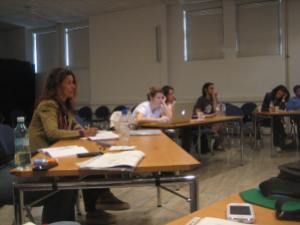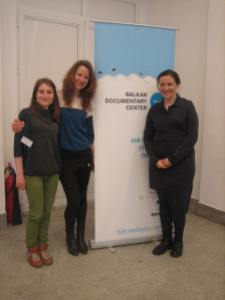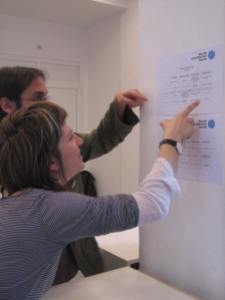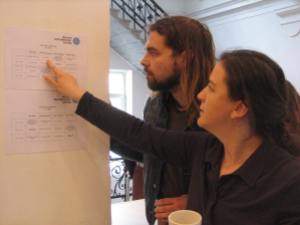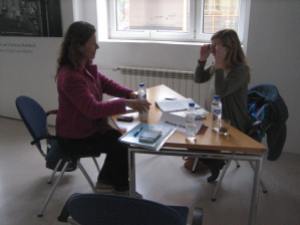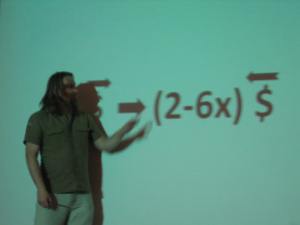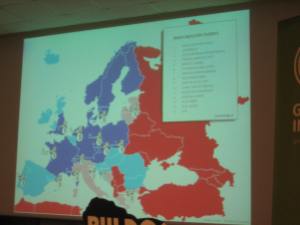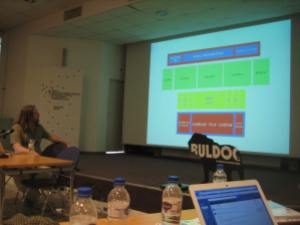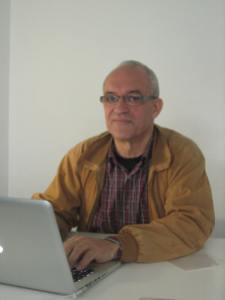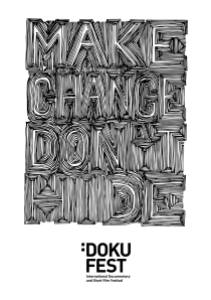All posts by Dimitra Kouzi
Photo Gallery: Prix Europa 2014 Online Category
Fresh from Berlin and Prix Europa!
For the online category the Jury members, after watching and discussing the projects, vote on:
- Concept
- Innovation
- Public value
- Production Quality
- Overall appeal
They can give 1-10 points, meaning: weak, okay, good, very good, exceptional. It is a very democratic system to choose the winners!


Tips:
Have a look at ARTE's Type : Ryder a game-documentary about the history of typography.
14 Diaries of the Great War is a German Production about the 100th anniversary of the First World War.
The Online category will be completed on October 23,so do not miss Synaps a great online interactive experience. You can choose from a collection of Super 8 film clips spanning from the 1940s to date. They are drawn from the film When I will be a Dictator by Yael Andre.
Pictures Copyright PRIX EUROPA
Prix Europa 2014 starts now!
Once again it's time for this year's Prix Europa in Berlin! Although I'm personally involved in the festival since 2011, I can't help but recommend it as a showcase for Europe’s best television, radio and online productions.
A total of 13 PRIX EUROPA Trophies will be awarded. This year's competition includes 210 entries handpicked from more than 650 projects by 294 organizations from 35 countries.
Media professionals from all over the continent flock to Berlin in October 18-24 to watch the films, listen to radio projects, surf through websites and vigorously debate the nominated productions. There are no juries like in other festivals. The juries in Prix Europa categories are the nominees themselves! Starting Monday October 20 2014 they will watch all the nominated projects in their respective categories; every afternoon they will discuss and vote, and on Friday the winners will be announced.
Listen to an interview with the directors of the fantastic Meet the Fokkens, TV Documentary 2012 winners.
The festival is open to visitors. If you are involved in the media business, a director, producer in TV or Radio, a journalist, or a student, it's totally worth it to visit Berlin's Haus des Rundfunks, next to the broadcasting headquarters of the Rundfunk Berlin Brandenburg. It is a great opportunity for networking and inspiration! Check out this year's exciting entries in the programme.
PRIX EUROPA is organized by a coalition of 28 major European broadcasters and institutions, including the European Broadcasting Union.
How about a look back at the 2013 winners to relieve the tension?
See you at RBB in Berlin!
Stuck in Athens: STOP-OVER
The Talent Dove of the Sparkasse Leipzig Media Foundation, the top prize in the Young Cinema Competition, went to Kaveh Bakhtiari for the Swiss-French production L’Escale (Stop-Over). The prize money of €10,000 is intended to serve as seed funding for the Iranian-born director’s next documentary project. You can immediately feel the Iranian realism, and that is strange because this time it's a documentary.
When I saw the documentary at DOK Leipzig I had the feeling that I discovered something very special. A film set in Athens, showing what is going on with irregular immigrants. It gives a human face to what we normally regard as mere statistics.
Kaveh Bakhtiari spends a year in a flat shared by irregular immigrants in Athens. Along with him are his cousin and others who are stuck in Athens, hoping to find a way to move on to Germany, Norway, or any other European country where they can find a job and survive. The filmmaker follows them in Athens and the result is a poignant, poetic film.
Greece's geographical location and extensive, island-fringed coastlines have long made it a natural stopping-point for people from the Middle East seeking better opportunities elsewhere, with consequences that have become a major domestic political concern in the country over the last few years. This wider picture isn't part of Bakhtiari's remit - instead, his reportage examines the human cost of the situation. Sequences in Amir's unofficial guest-house alternate with external footage in which Bakhtiari accompanies Mohsen and company on their forays into the city, where they're in constant fear of attracting official attention. Through the film you get to know another face of Athens. 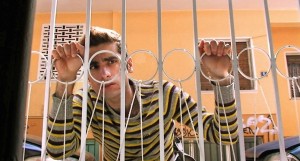
Claas Danielsen, DOK Leipzig director, described the film in his opening talk last week in Leipzig:
"And those who see the young Iranians in Kaveh Bakhtiari's film Stop-Over while they desperately risk their lives to arrive in the West, next time they see images of irregular immigrants in the high-security borders of Europe they won't be able to look indifferently the other way."
I myself will never forget the curtain of this small apartment. This image haunts me every time I pass by a basement in Athens.
The film is this year's CineDoc premiere on October 8 2014, 20.00 at the French Institute in Athens (31, Sina Str.).
The film will be followed by a discussion led by journalist Maria Psara, a Migrant Kitchen event by Culinary Backstreets Athens and Give Hope Charity Foundation, and live music from the Eastern-Mediterranean region by Michalis Klapakis and his group Ta Daktyla tis Ekatis.
Balkan Documentary Center Module Prizren
If you are located in the Balkans or have a project related to the area and you want to develop your film with the best assistance and care, here is where you should apply. The first session was in Sofia Bulgaria in May and the second starts 21/8 in Prizren.
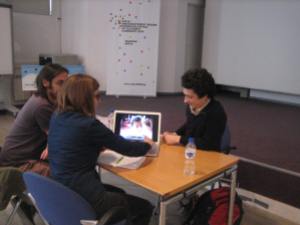
Luigi Pepe (Executive Producer) and the Director and Editor Silvia Poeta from Italy working in one by one meetings with the Bulgarian director Ilian Metev (Sofia's Last Ambulance, a feature-length observational documentary film co-production of Germany, Bulgaria, and Croatia) in Sofia in May 2014
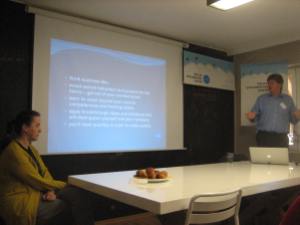
EDN (European Documentary Network) Director Paul Pauwels and the Producer and CEO of the BDC Martichka Bozhilova
The Serbian Director Boris Mitic about financing documentaries and C.E.archetypes !
BALKAN DOCUMENTARY CENTER WORKSHOP
BDC Discoveries 2014 is a project development workshop, aimed at uniting professionals with documentary projects with an international potential. Module Prizren is focused on training sessions related to packaging the projects for the international market. A final pitch in front of a jury consisting of experts will give the participants feedback about their work and the much needed experience.
Place: DokuKino Conference Room
Open to participants only
Date: 20 – 24 August
Here is the Program for Prizren
BDC PRIZREN SCHEDULE 2014
PODCAST: DocStories με τον Μάρκο Γκαστίν
Dealing with the Past in Prizren DokuFest
In between screenings and late night parties, DokuFest in Prizren (16-24/8) will continue the tradition of hosting a variety of panels.
DEALING WITH THE PAST (August 18, 17:30h)
Debate and open discussion about experiences in peace building, tolerance and dealing with the past in protracted social conflicts.
Moderator: Adriatik Kelmendi
Panelists: Enver Robelli, Reuf Bajrovic. Predrag Bambic
Place: Mullini, Marash Park
COMPLEX CITIES (19 August, 17:30 h)
A conversation between architects, urban planners and anthropologist on public space and the collective memory of city life.
Panelists: Rozafa Basha, Gezim Pacarizi, Dukagjin Hasimja, Nita Luci and Astrit Hajrullahu
Place: Mullini, Marash Park
How to co-produce with Denmark
The Danish Film Institute (DFI) has minor-coproduction schemes for feature fiction and animation films with three deadlines a year, and for short and documentary films with two deadlines a year. DFI may support 6-9 minor co-productions in feature films and 4-6 minors in short and documentary films a year.Read more:
http://www.dfi-film.dk/how-to-co-produce-with-denmark-feature

The person you have to contact is Noemi Ferrer Schwenk. She coordinates the Danish Film Institute’s work with international co-productions and is one of the key figures in the Film Institute’s overall international activities.
Noemi Ferrer Schwenk
Phone +45 5096 7411
[email protected]
Nicht zu verpassen DOK. fest München 7-14/5 !
In seinem 29. Jahr ist das DOK.fest, das Internationale Dokumentarfilmfestival München, längst eine etablierte Größe. Wettbewerb, Festival-Specials, ein umfassendes Rahmenprogramm und ein Forum bieten Zusehern wie auch Branchenkennern eine Plattform, um internationale Produktionen zu sehen, sich über Dokumentarfilme auszutauschen und auch eigene Ideen vorzubringen.
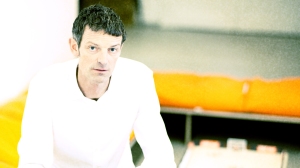 Daniel Sponsel, Festivalleiter
Daniel Sponsel, Festivalleiter
In weniger als einer Woche startet das DOK.fest in seine letzte Zwanziger-Runde: 135 Dokumentarfilme aus 41 Ländern werden vom 7. bis zum 14. Mai 2014 an elf Spielorten gezeigt. Drei Wettbewerbsreihen küren die besten Filme, Brasilien ist diesjähriges Gastland, eine Retrospektive widmet sich den Arbeiten der britischen Filmemacherin Kim Longinotto
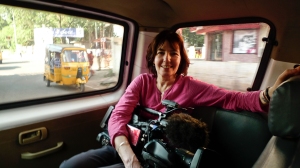
und Specials, Musikfilme und die erstmalig statt findende Best-of-Oscar-Reihe bieten Dokumentarfilmfans eine Woche lang fast rund um die Uhr Information, Inspiration und ein unterhaltsames und reichhaltiges Programm.
Ein wichtiger Teil des Festivals ist die Branchen- und Nachwuchsplattform DOK.forum. Der Treffpunkt für die Branche wartet mit einem vielfältigen Programm in drei Teilbereichen auf: Das "Filmschulfestival" hat in diesem Jahr elf Hochschulen zu Gast. Die "Perspektiven" diskutieren unterschiedlichste Themen – von 3D, über die Qualität des Fernsehens für seine jungen Zuschauer bis hin zu neuen Vernetzungsmöglichkeiten – in spannenden und besuchenswerten Workshops und Werkstätten.
Der dritte Teil unter dem Namen "Marktplatz" bringt im wahrsten Sinne des Wortes alle Entscheider an einen Tisch: Während der Roundtables auf dem DOK.forum Marktplatz, die sich als Bühne für neue Projekte verstehen, stellen Filmemacher, Autoren und Regisseure ihre Konzepte und Ideen vor
namhaften Redakteuren, Produzenten und Vertrieben sowie Verleihern vor. Die moderierten Runden – ihr Fokus liegt auf dem deutschsprachigen Produktionsraum – sind thematisch zusammengestellt und finden auch zu Spezialthemen wie Crowdfunding, Distribution, Digital Workflow oder Cross
Media statt.
Das Programm zum DOK.fest 2014 sowie Tickets sind unter
http://www.dokfest-muenchen.de erhältlich.
The workshop for docs in a rough cut stage! DOK Incubator
Let's get personal was the motto of this year's DOK INCUBATOR at the Leipziger Pfefermühle. And the presentation was full with people who came to see the nine selected documentaries. A fine initiate witch started by Andrea Prenghyova, the creator of the DOK.Incubator in collaboration with DOK Leipzig three years ago..
Dok Incubator is a course that runs for three weeks, during half a year, where you apply with a rough cut.
 They work with the teams of director, editor and Producer, with their films, to improve their film and work with the producers and teams to learn how to do international financing and distribution. They also work with the films to make them more international as well. Director and editor has cooperation with big european editors to improve the films. The course is held in different European cities. It is a media supported program like EAVE, but just for documentaries in post production.
They work with the teams of director, editor and Producer, with their films, to improve their film and work with the producers and teams to learn how to do international financing and distribution. They also work with the films to make them more international as well. Director and editor has cooperation with big european editors to improve the films. The course is held in different European cities. It is a media supported program like EAVE, but just for documentaries in post production.
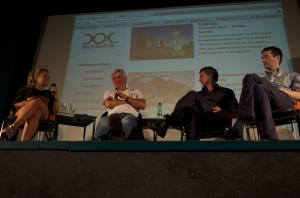
On Tuesday at DOK Leipzig...





